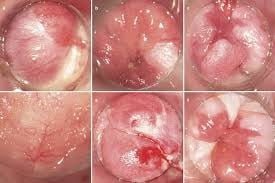Our doctors are anal pap smear specialists in NYC. Anal pap smears are offered at Manhattan Gastroenterology locations. Anal pap smears help prevent anal cancer in high-risk patients.
Individuals at an increased risk for developing anal cancer should have an anal pap smear to evaluate for possible cell changes that can potentially lead to anal cancer. The incidence of cervical cancer has diminished significantly due to the advent of Pap smears.
HPV affects the anus in the same way it affects the cervix as these consist of the same cell type. The test involves the doctor inserting a small swab into the anus and taking samples of the cells by gently brushing the swab in the anal canal. The sample is sent to a laboratory to be checked for virus subtypes that cause warts and any changes in the cells that make up the anus lining. This simple test takes a minute or two. If abnormal cells are present, a high-resolution anoscopy (HRA) is warranted.
Who should be getting anal pap smears?
While there are no national guidelines on who should get an anal Pap smear, the test is recommended for individuals who fall into the following categories:
- HIV positive men and women
- Immunosuppressed individuals (those on medications that can suppress their immune systems such as steroids, immunomodulators, or biologic therapies, as well as those who are organ transplant recipients)
- Individuals who engage in receptive anal course
- Individuals with anogenital warts
- Women with a history of high-grade cervical, vulvar, vaginal dysplasia, or cancer.
At Manhattan Gastroenterology, we strive to provide preventative medical care and offer anal pap smears to individuals at high risk for anal cancer. If you are unsure whether you need a test, please consult one of our gastroenterologists.
What is high-resolution anoscopy (HRA)?

A high-resolution anoscopy is warranted if the specialist finds abnormal cells on an anal pap smear. HRA is a procedure that allows for a more thorough examination of the affected tissue in the anal canal. Your doctor uses an anesthetic gel to numb the area and inserts anoscope (an instrument used to see into the anus and last part of the rectum) to visualize the anal mucosa.
We use a small amount of acetic acid (vinegar) and iodine to stain the tissues, which helps differentiate the abnormal tissues. We biopsy any abnormal appearing tissues and send samples to the pathology lab to check for any signs of dysplasia (pre-malignant cells) or cancer cells that will require further treatment.
HRA or High-Resolution Anoscopy may be needed to allow for closer visualization and help your doctor make an accurate diagnosis.
How Often Should You Get a Pap Test?
The anal Pap test has not been properly studied in order to determine how frequently it should be performed. However, it is recommended that the test be done every year in at-risk HIV-positive individuals and every 2 to 3 years in at-risk HIV-negative individuals.
Are Pap Tests Painful?
An anal pap smear is not painful, and you won’t have to do anything to prepare for it. During the procedure, you will lie on your side for 10 to 15 minutes while the specialist inserts a swab (a long, thin Q-tip) about 1 ½ – 2 inches into your anus, rotates it, and then places it in a liquid culture medium before sending it to the lab.
Important Reminder: The only intent of this information is to provide guidance, not definitive medical advice. Please consult a doctor about your specific condition. Only trained gastroenterologists like our doctors can determine an accurate diagnosis and proper treatment.
Our doctors provide highly personalized and comprehensive care as best-in-class, top-rated NYC gastroenterologists. For more information about anal pap smears offered at Manhattan Gastroenterology or to schedule a consultation with the best-in-class GI doctors, please contact our Upper East Side NYC offices.

